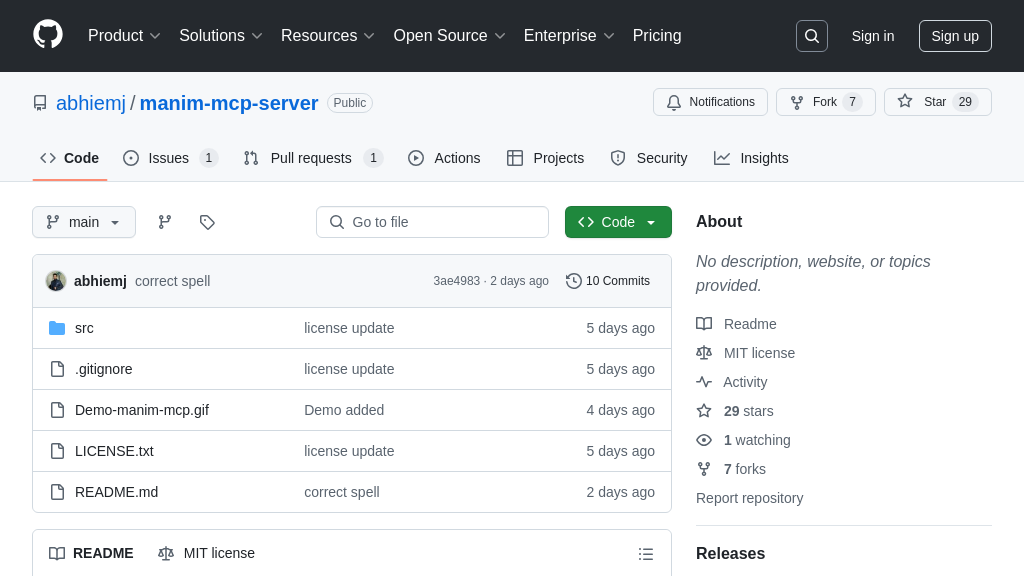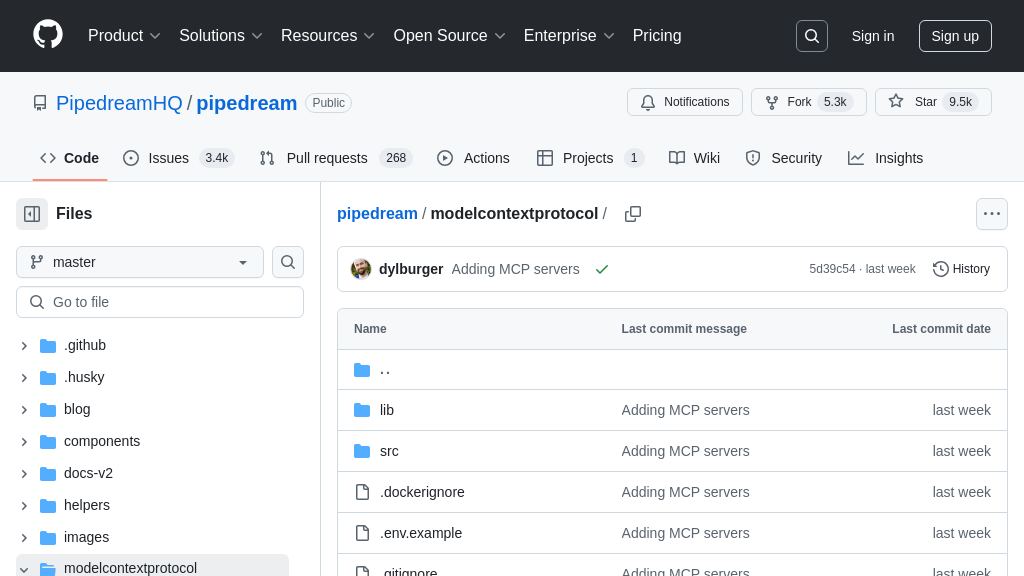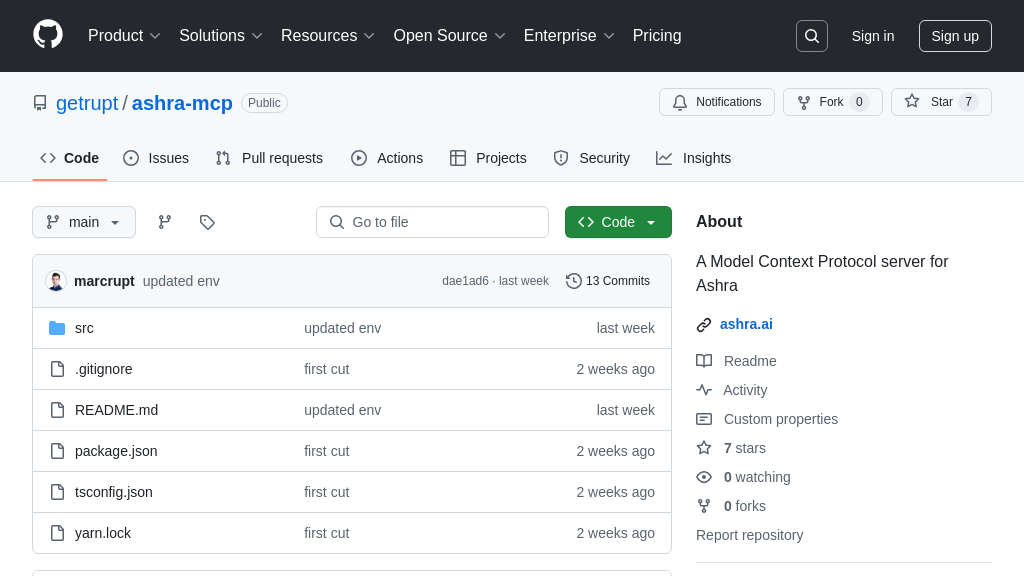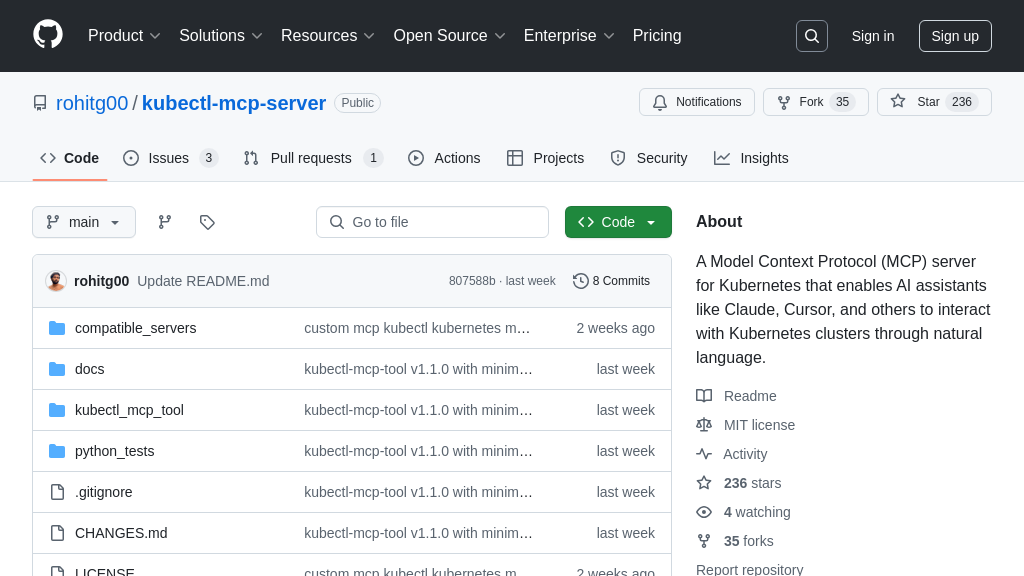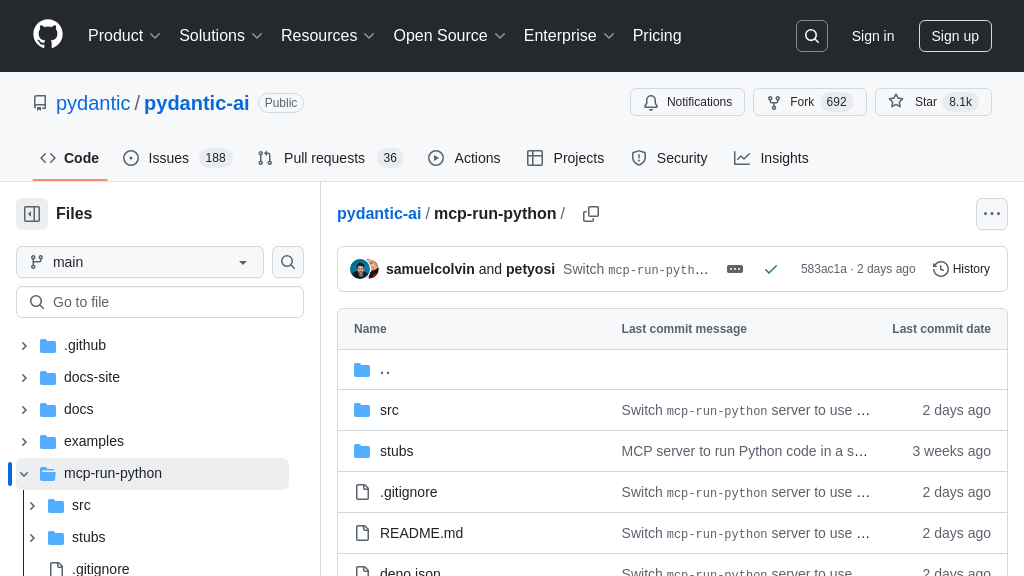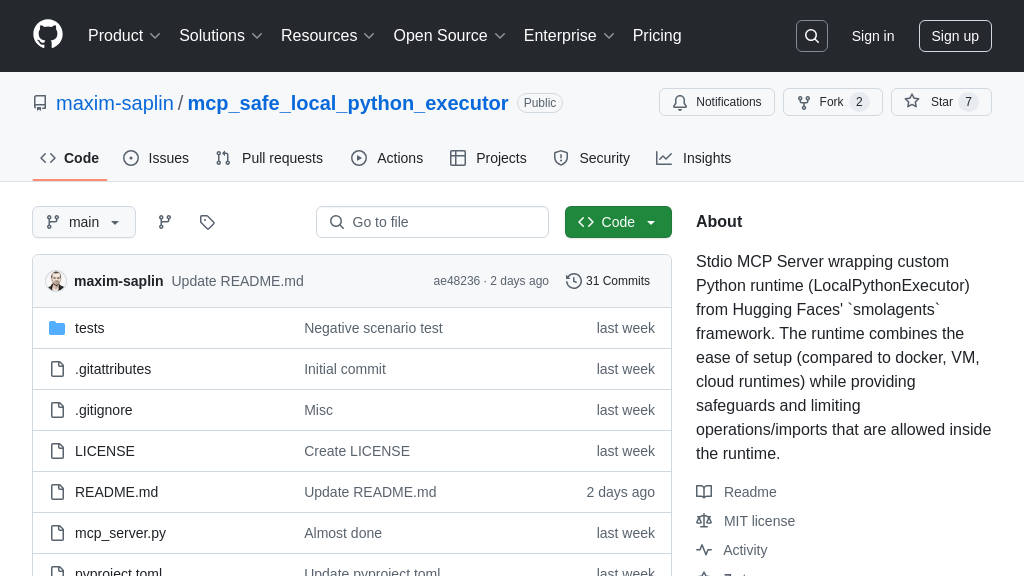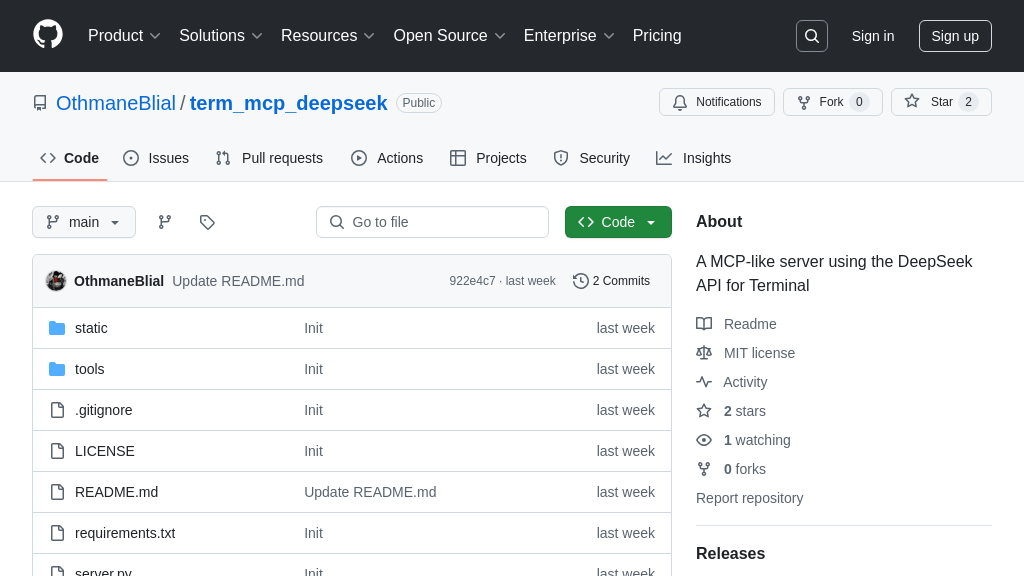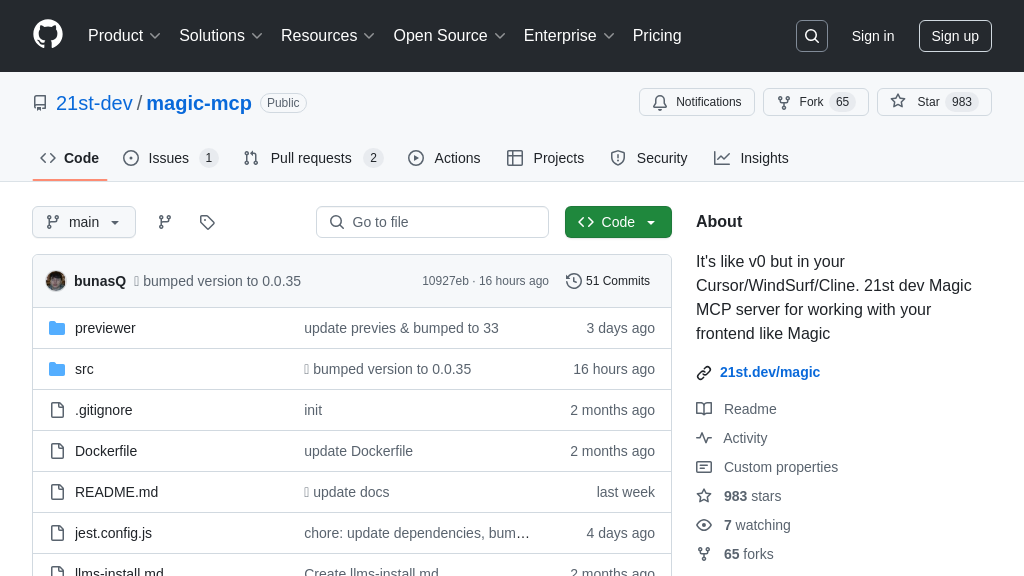mcp-golang
mcp-golang: Go library for streamlined MCP server and client development, simplifying AI model integration.
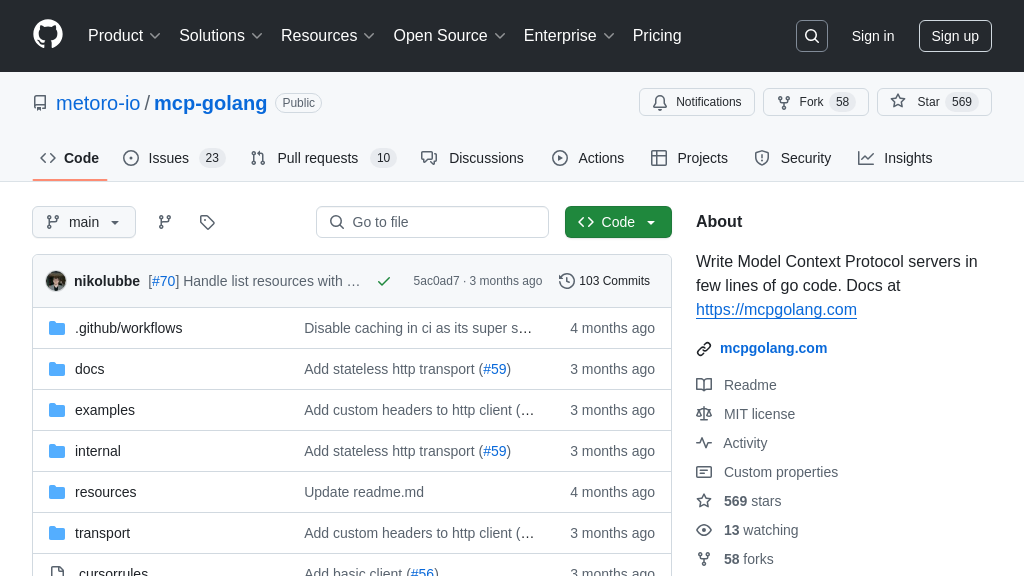
mcp-golang Solution Overview
mcp-golang is a Go language implementation of the Model Context Protocol (MCP), designed to simplify the creation of MCP servers and clients. It empowers developers to seamlessly integrate AI models with external resources using Go.
This library offers type-safe tool argument definitions using native Go structs, automatically handling schema generation, deserialization, and error management. It supports customizable transports, including built-in options like stdio for full-featured support and HTTP for stateless communication, and allows for the creation of custom transports. mcp-golang minimizes boilerplate code by generating MCP endpoints, focusing developer effort on tools, prompts, and resources. Its modular design allows developers to use the entire library or select specific components. With full bidirectional support via stdio, mcp-golang streamlines the development of both MCP servers and clients in Go, facilitating robust and efficient AI integrations.
mcp-golang Key Capabilities
Type-Safe Tool Arguments
mcp-golang leverages Go's strong typing system to define tool arguments as native Go structs. By annotating these structs with jsonschema tags, developers can automatically generate schemas, handle deserialization, and manage errors. This approach eliminates the need for manual parsing and validation, reducing boilerplate code and improving the reliability of tool interactions. For example, a tool that calculates the area of a rectangle could define its arguments as a struct with width and height fields, both annotated with jsonschema:"required" to ensure that these values are always provided. This ensures that the AI model provides valid inputs, preventing runtime errors and improving the overall stability of the MCP interaction. The use of native Go structs simplifies development and enhances type safety.
Flexible Transport Options
mcp-golang offers a range of transport options to suit different deployment scenarios. It includes built-in transports like stdio for full feature support, including bidirectional communication, and HTTP for stateless communication. For example, stdio transport is suitable for local development and testing, where the AI model and the MCP server run on the same machine. The HTTP transport is ideal for production environments where scalability and statelessness are important. Furthermore, the library allows developers to create custom transports, enabling integration with various networking technologies and security protocols. This flexibility allows developers to tailor the communication channel to the specific needs of their application, optimizing performance and security.
Low-Boilerplate Code Generation
mcp-golang automates the generation of MCP endpoints, significantly reducing the amount of boilerplate code required to implement MCP servers. By simply defining the tools, prompts, and resources, mcp-golang generates the necessary endpoints, schema, and handling logic. This automation streamlines the development process, allowing developers to focus on the core functionality of their tools and prompts. For instance, registering a new tool only requires defining the tool's arguments as a Go struct and providing a handler function. mcp-golang takes care of the rest, including generating the tool's schema and creating the endpoint for invoking the tool. This feature accelerates development and reduces the risk of errors associated with manual endpoint creation.
Bidirectional Communication via Stdio
The stdio transport in mcp-golang fully supports bidirectional communication between the AI model and the MCP server. This enables real-time notifications and interactive sessions, enhancing the user experience and enabling more complex interactions. For example, the server can send progress updates to the client during a long-running task, or the client can send feedback to the server based on the results of a tool call. This bidirectional communication is crucial for applications that require real-time feedback and interactive workflows. The stdio transport provides a reliable and efficient channel for these types of interactions, making mcp-golang a suitable choice for building interactive AI applications.
Modular Architecture
mcp-golang is designed with a modular architecture, dividing the library into three components: transport, protocol, and server/client. This modularity allows developers to use only the parts of the library they need, reducing dependencies and improving flexibility. For example, a developer who only needs to implement a client can use the transport and protocol components without including the server component. This modular design also makes it easier to extend and customize the library. Developers can create custom transports or modify the protocol implementation to suit their specific needs. This flexibility makes mcp-golang a versatile tool for building a wide range of MCP-enabled applications.
